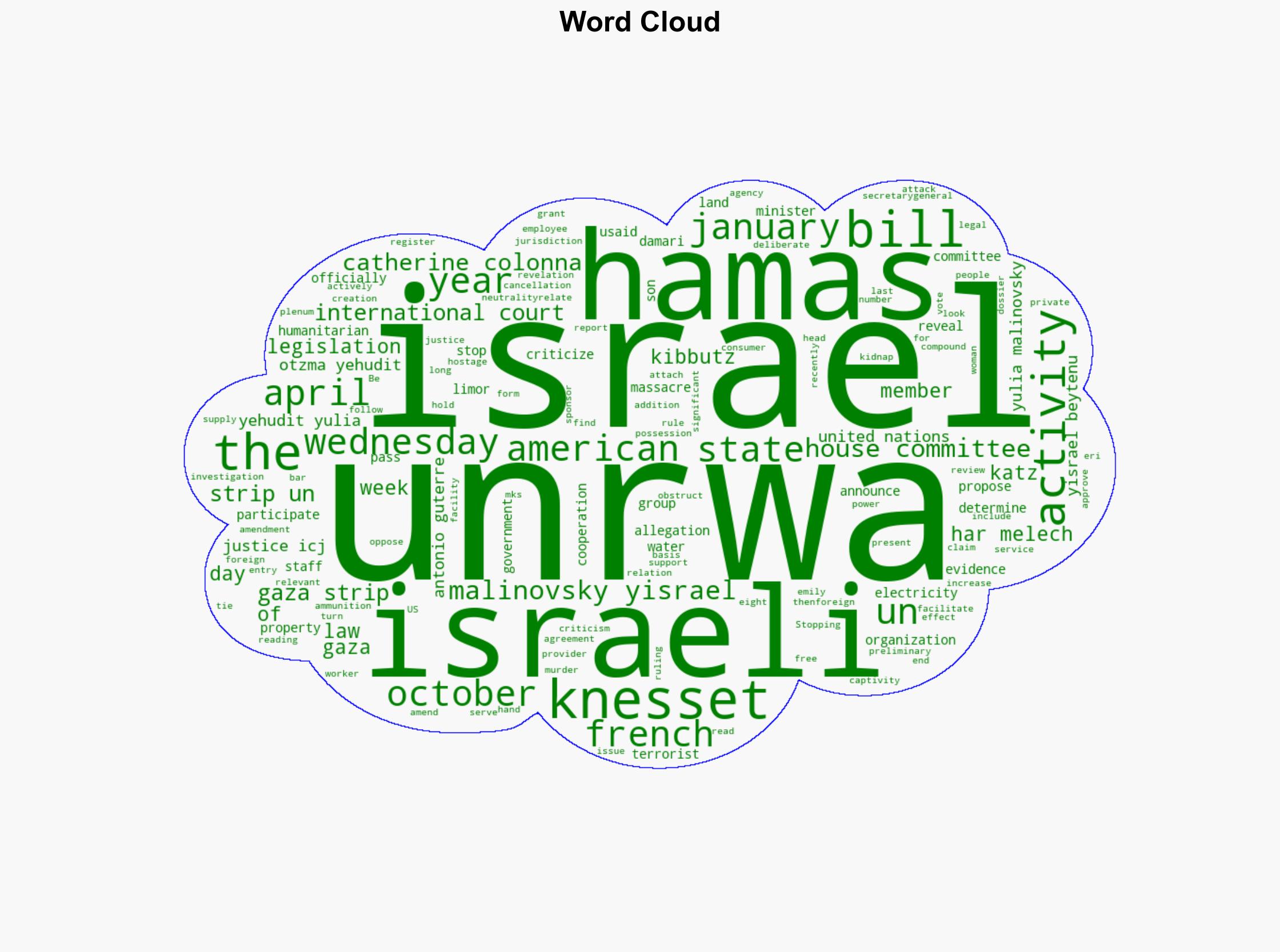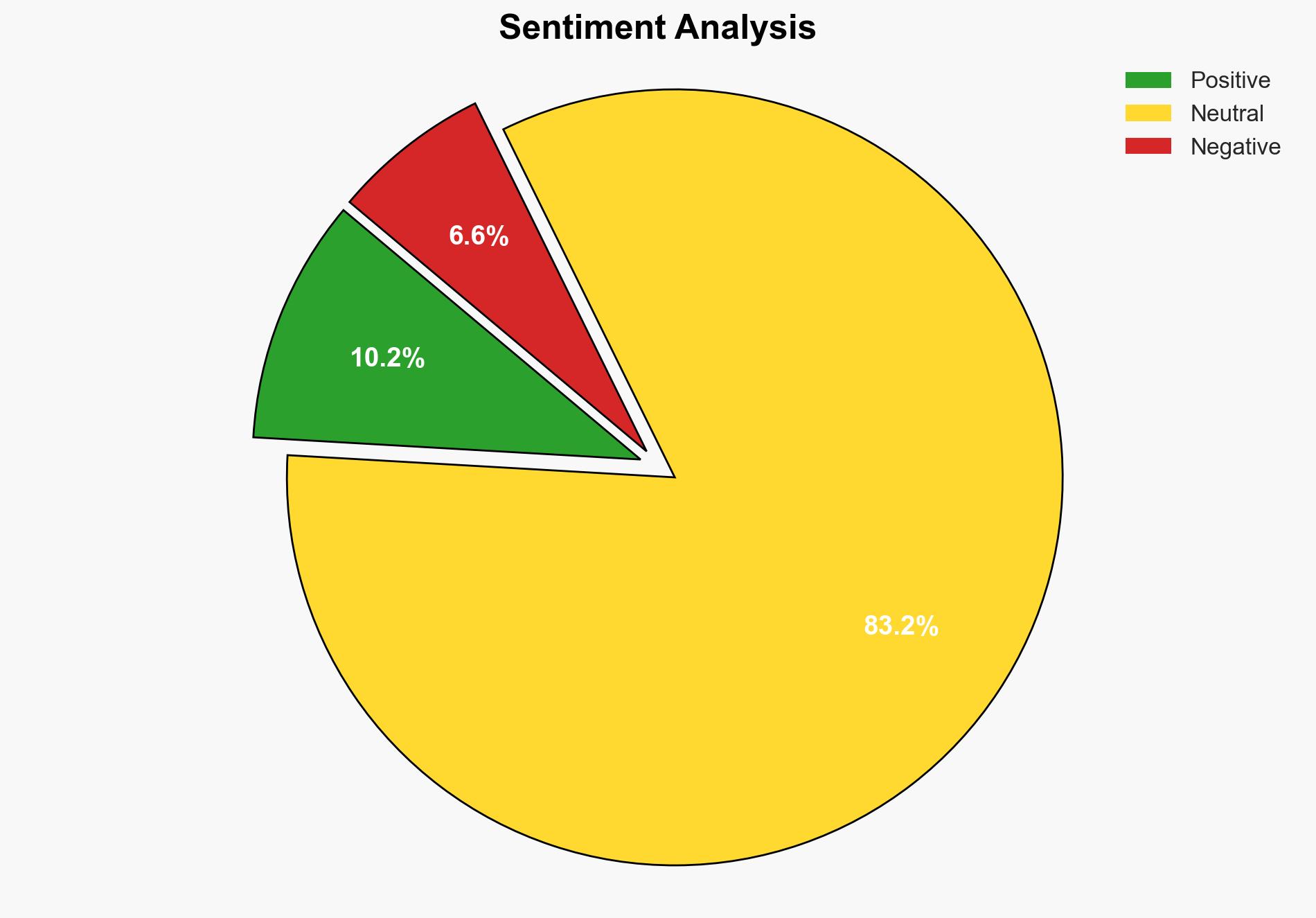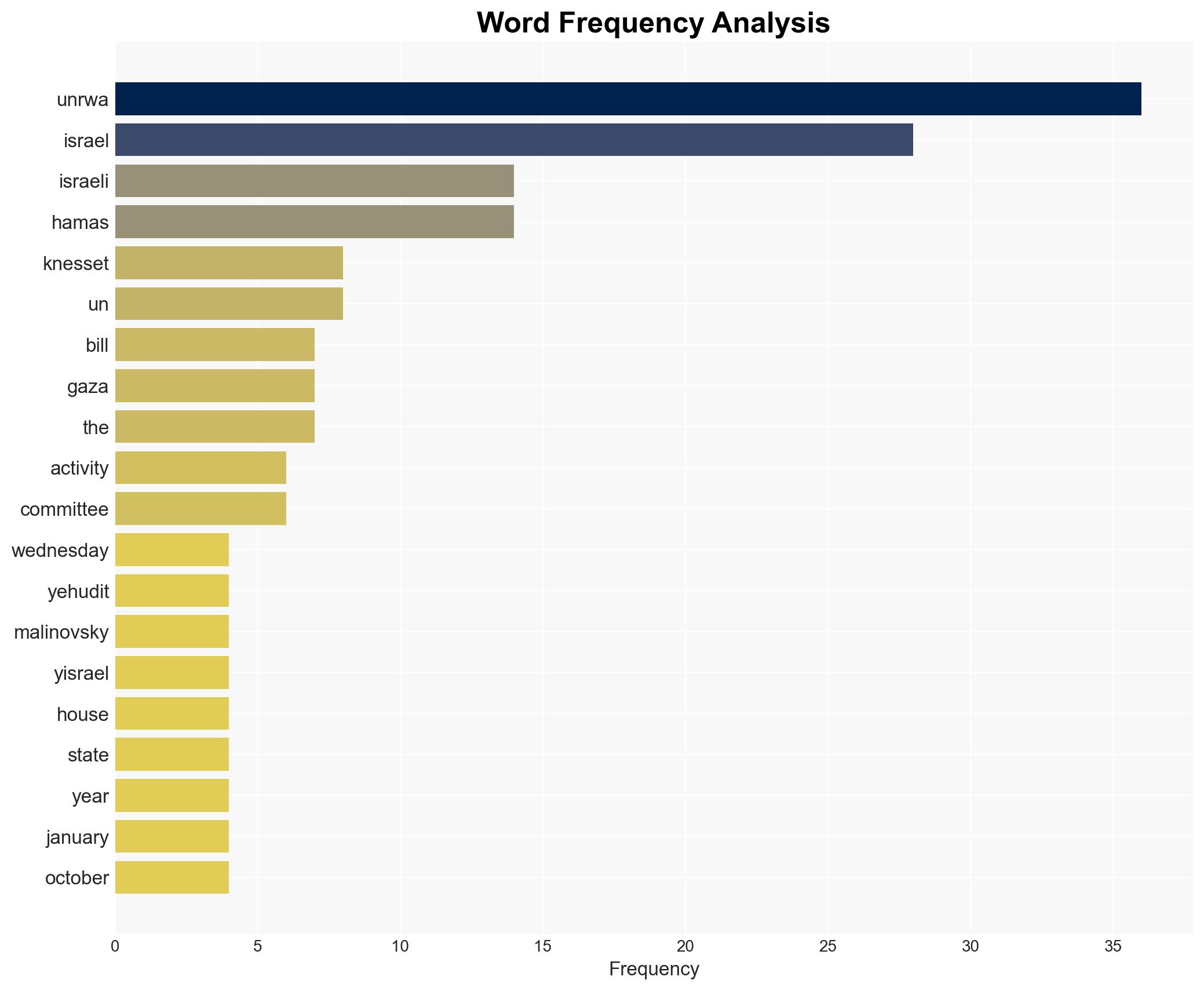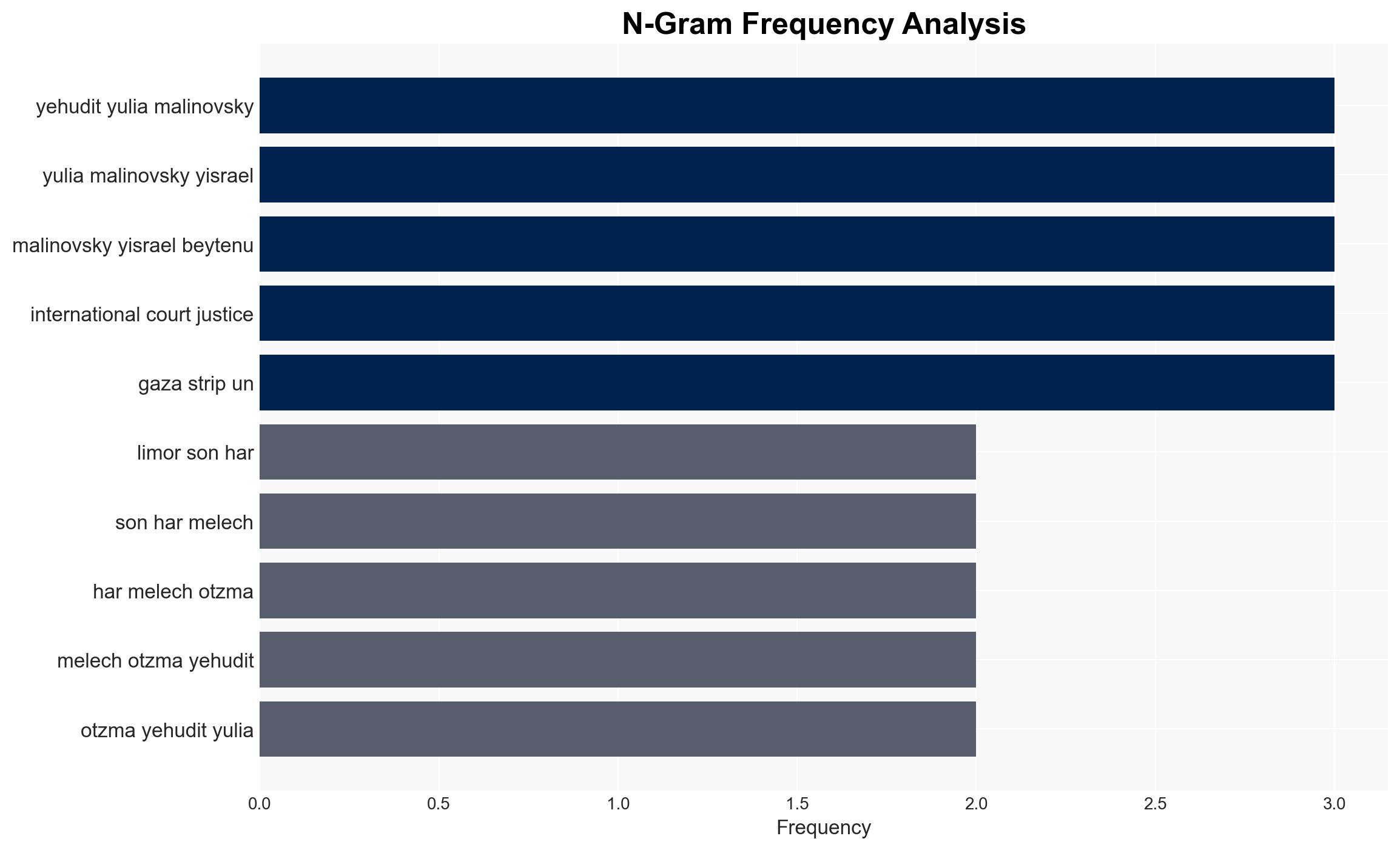Knesset advances bill to cut UNRWA utilities – Israelnationalnews.com
Published on: 2025-11-20
AI-powered OSINT brief from verified open sources. Automated NLP signal extraction with human verification. See our Methodology and Why WorldWideWatchers.
Intelligence Report:
1. BLUF (Bottom Line Up Front)
The Israeli Knesset’s advancement of a bill to cut utilities to UNRWA facilities is a strategic maneuver likely aimed at undermining UNRWA’s operations due to alleged ties with Hamas. The most supported hypothesis is that Israel seeks to pressure UNRWA to reform or withdraw from Israeli jurisdiction. Confidence Level: Moderate. Recommended action includes diplomatic engagement with international stakeholders to address humanitarian concerns while ensuring security interests.
2. Competing Hypotheses
Hypothesis 1: The bill is primarily a security measure to curb UNRWA’s alleged support for Hamas and other terrorist activities. This is supported by recent revelations of UNRWA staff involvement in Hamas activities.
Hypothesis 2: The bill is a political maneuver to gain domestic support by taking a strong stance against perceived threats from UNRWA and its alleged affiliations. This aligns with the political agendas of the bill’s sponsors, Limor Son Har Melech and Yulia Malinovsky.
Hypothesis 1 is more likely due to the alignment with recent security concerns and international scrutiny of UNRWA’s operations.
3. Key Assumptions and Red Flags
Assumptions: It is assumed that the allegations against UNRWA staff are accurate and that cutting utilities will significantly impact UNRWA’s operations.
Red Flags: Potential bias in the portrayal of UNRWA’s activities; lack of independent verification of allegations against UNRWA staff; possible diplomatic backlash from international bodies.
Deception Indicators: The timing of the bill’s advancement following the October Hamas attack could suggest a strategic narrative to justify the bill.
4. Implications and Strategic Risks
The bill could lead to increased tensions between Israel and international organizations, potentially affecting foreign aid and diplomatic relations. There is a risk of humanitarian fallout in Gaza if UNRWA operations are severely disrupted. Escalation scenarios include retaliatory actions by Hamas or increased international pressure on Israel.
5. Recommendations and Outlook
- Engage in diplomatic dialogue with UNRWA and international partners to address security concerns while ensuring humanitarian needs are met.
- Monitor for potential retaliatory actions by Hamas or other groups.
- Best-case scenario: UNRWA reforms its operations, reducing security threats while maintaining humanitarian support.
- Worst-case scenario: Severe disruption of UNRWA services leads to humanitarian crises and increased regional instability.
- Most-likely scenario: Continued diplomatic tensions with incremental adjustments to UNRWA operations.
6. Key Individuals and Entities
Limor Son Har Melech, Yulia Malinovsky, UN Secretary-General Antonio Guterres, French Foreign Minister Catherine Colonna, Israel Katz.
7. Thematic Tags
Structured Analytic Techniques Applied
- ACH 2.0: Reconstruct likely threat actor intentions via hypothesis testing and structured refutation.
- Indicators Development: Track radicalization signals and propaganda patterns to anticipate operational planning.
- Narrative Pattern Analysis: Analyze spread/adaptation of ideological narratives for recruitment/incitement signals.
Explore more:
Counter-Terrorism Briefs ·
Daily Summary ·
Support us





